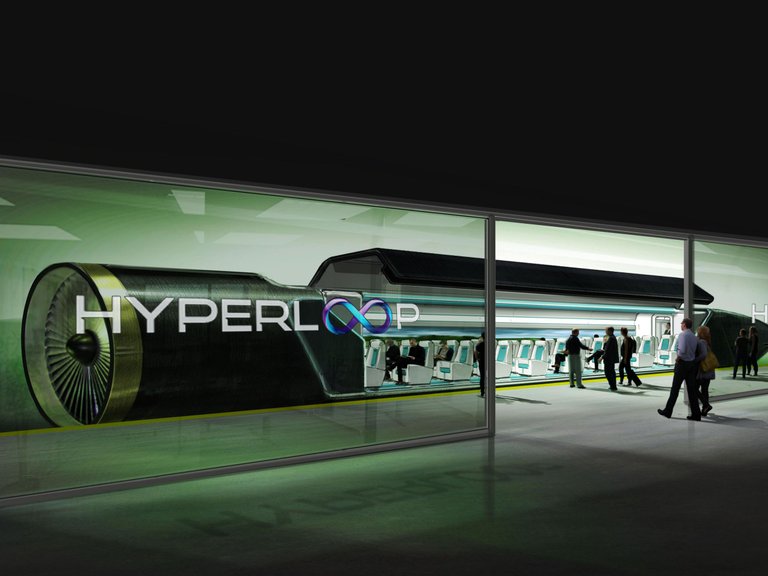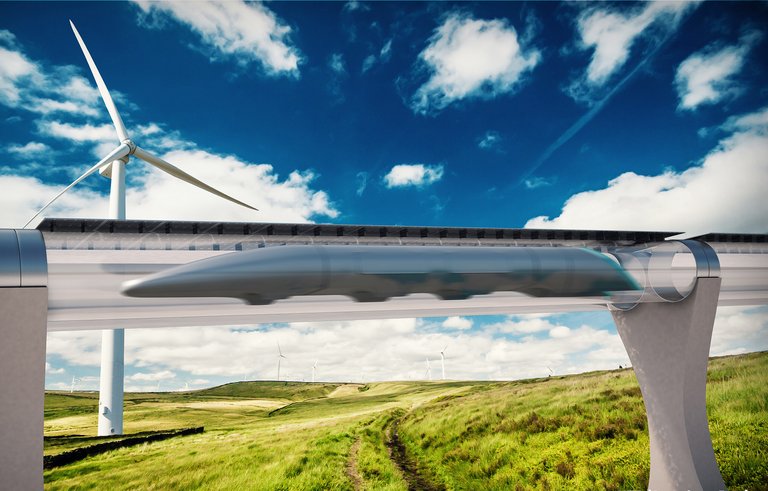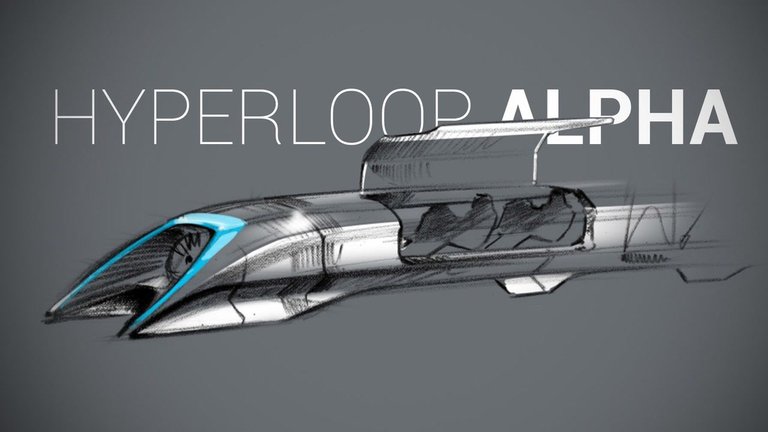Backed by SpaceX Founder and CEO and tech mogul Elon Musk, the Hyperloop is an almost futuristic transport system that can cut down travel time significantly. But can it succeed?

Near future?
The idea was presented by Musk in 2012. Basically, the Hyperloop uses long tubes to create a vacuum by removing the air inside. Thus, the pressurized capsules inside the tube can travel at pretty fast speeds since all the friction would be removed. SpaceX has outsourced the idea of Hyperloop and they have encouraged other companies to take up the idea, fund and develop it, so that in the future it may become a reality. A few companies such as Hyperloop One are fast at work on this idea. Agreements with different countries and cities such as the United Arab Emirates are already underway where Hyperloop One could build the tubes to test and develop the idea.
According to Hyperloop One's website, it can potentially reduce the time taken to travel from Melbourne to Sydney to 55 minutes, which is a bit longer than 3 hours if we travel by train. Similarly, the hyperloop could take people from London to Edinburgh in 50 minutes. These aren't the only cities that are looking to implement the technology, cities and countries across the European continent are eager to adopt this new tech to cut down very long travel times from city to city. Imagine if you could visit your friend living in Sydney from Melbourne in almost an hour!
If implemented, this could eliminate the long commutes and help people reach their workplaces faster. Essentially it could open a lot more job opportunities for a large amount of people. Neat right? This seems to be the next big thing in the transportation technology, and to me, it seems very futuristic.

Like every new revolutionary technology nowadays, people seem to have reservations about it. When you are building many hundreds of kilometers long tubes inside which high speed capsules carrying people are supposed to pass, the room for error becomes sharply zero. The idea faces a lot of hurdles from nature which it must overcome if it aims to become a reality. For example, contraction and expansion in the metal tubes is a big problem. It is estimated that on a hot day, the expansion in the tubes which are 560 kilometer long will be almost 300 meters. A football field is 120 yards in length, which is equal to almost 110 meters. So the expansion in the tubes will be almost equivalent in length to three football fields!
Not only this, I don't think that the Transportation Department/Authority will approve anything without some necessities like emergency exit, and washrooms etc. Earthquake proofing is also necessary, but I imagine that this could be accomplished. The prospect of building hundreds and thousands of kilometers long vacuum tubes is challenging in itself. The Space Power Facility houses largest vacuum chamber in the world build by NASA. It is used to test rockets, having a height of 37 meters and a diameter of 30 meters. The Hyperloop requires vacuum tube which are much, much longer than this.
Many of the points I have mentioned are neatly explained by the YouTuber thunderf00t in the video below. Watch it if you want to know more about the challenges and hurdles Hyperloop faces.
It is not possible that the development teams and the companies working on this idea are unaware of these very basic restrictions. I'm sure that they have thought up a few bits of clever engineering that can potentially solve all of these problems. Right now, I think that Hyperloop still needs a bit more research and development. If developed correctly, yes indeed it can revolutionize the transportation industry. Even if it is deemed unsafe for human travel, we can use it to travel cargo and shipments.
I tried to add the perspective of the skeptics as well in this article to ensure that there remains no bias. However, personally I do think that a lot of the points brought up by thunderf00t are a bit exaggerated as he does mention the possible accidents that could occur but doesn't seem to mention any of the system or mechanisms that could be developed to prevent them.
Many of the disastrous scenarios that are implied to Hyperloop travel could also be applied to airline travel, they could be applied to any other mode of travel as no mode of transportation is 100% safe.

If I speak for myself, I'd say that the idea of travelling from one city to another is very exciting. We shouldn't limit innovation and I think even if hyperloop fails (I hope it doesn't) we may find a better way to make a better "hyperloop". In the end, only through trial and error can one find the secret of success right?
In case you are interested, here are the initial plans put forward by Elon Musk.

I think it will be cool to hop on a super fast train I just want to make sure it doesn't fall off the tracks so I probably get her like a year to
I wanna try hiperloop so bad!
click here!This post received a 47% upvote from @randowhale thanks to @infinitor! For more information,
In this universe time is money.
Everything takes to much time and eveything must go faster and take less time.
In 30 years we won't drive cars anymore by ourselfs.
And we will take this hyperlook everyday to our work.
Mark my words.. ;)
Nice article @infinitor! Do you think it would be difficult to insulate the hyperloop vessel so that the heat expansion becomes a non-issue?
I think companies in that field see insulation as somehow integrated part of the tubing separating the inner part that would be in contact with train cars. And there are also materials other than steel that could be used instead. Steel is default because it's cheap and abundant.
Hope will all travel one day with this!
How is travel from Melbourne to Sydney 4 and a half hours and only 3 by train? Are you taking time to get through security into account. Do they have super fast trains in Aus? I really don't know (everything in a comment box sounds sarcastic but I am not lol)
right i might have misread what was on their website. I have corrected it now.
thanks
I work out of country and like me there are millions and billions of people who are far far away from home and family... i dont know how much time it will take to make travel more faster but people like me always love to hear things like that so may be in future its possible for us to go home daily or even weekly and spend time with our families :)
Thanks for sharing amazing info @infinitor
We should build more a plan less. A lot of things were never built like Transrapid. But with Elon Musk we have the right man I guess.
Watching this project closely as it's super interesting
It's an amazing project, I've read many blogs out of Steemit about it. Will we see it in our lifetime?
I like it I vote you
That is an amazing project and I hope I will be able to see it done during my lifetime :) Thanks for this objective article.
My favorite hyperloop fact: the technology theoretically allows for substantially faster travel times than are often quoted. Unfortunately, those faster speeds require far faster acceleration and deceleration than most human beings feel comfortable, or can even stay conscious in.
Shipping crates on the other hand don't really give a shit. In a post-oil world I could imagine two or three hyperloops being built - but not so much for people as to replace sea shipping when giant oil-guzzling boats are no longer cost effective or morally defensible.